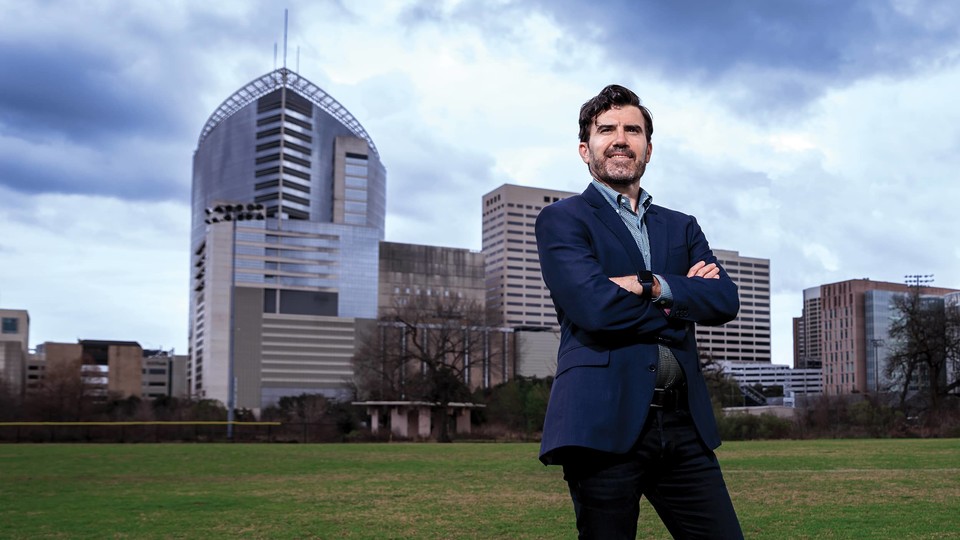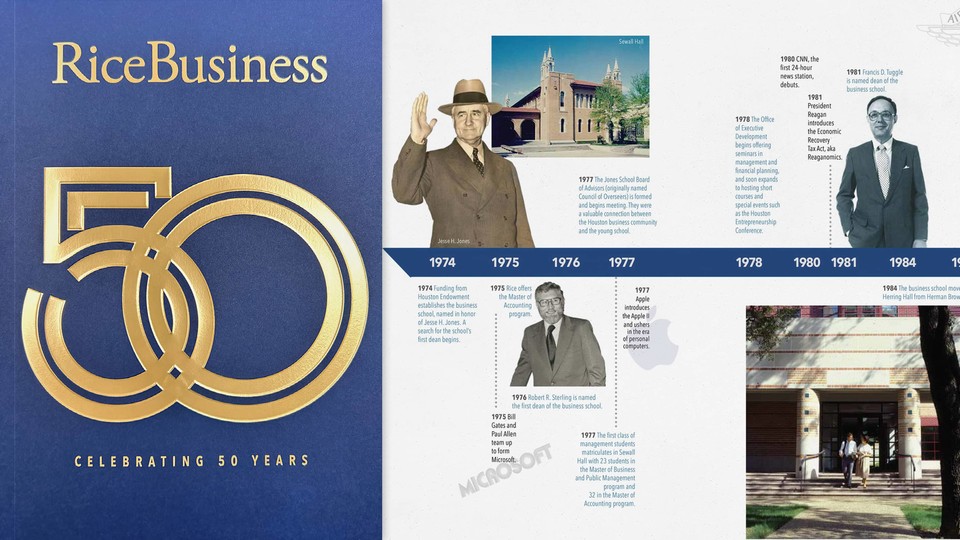Failing Forward
Wendy Fong EMBA ’13 looks back on the biggest mistake of her career — and the clarity it gave her to discover the work she loves.
I quit my job. I was an associate vice president of operations for the neuroscience department at Memorial Hermann with 20 years of experience and a team of 200 behind me. I supported amazing physicians. I built new offices. I brought new capabilities and technologies to hospitals. I was helping people — administrators, staff, healthcare workers and patients. It was all so exciting — and I quit.
My intentions were good: I wanted to make an even bigger impact, one I thought I could find in a health-tech startup. But when my team dwindled from 200 to 10 overnight, I thought: I made a huge mistake.
Sure, I would have the chance to make an impact on patients if the product took off — millions of them. There were people out there who would be thrilled to take on that task, one with such an undoubtedly laudable mission, but I realized quickly that I didn’t love the day-to-day work. I realized in that “mistake” that a business’ external success isn’t where I find the most joy. In leaving my job I lost the chance to develop and mentor a large team. There weren’t established ladders for employees to climb because we were still building the infrastructure. I couldn’t help them identify and strengthen their talents because we were all wearing many hats and scrambling to make it all work with what we had.
In the past, I thrived in that startup, make-it-work-with-what-you’ve-got culture, but this time, something was missing. In those days, I learned a lesson: My true passion was people, not operations. In a big organization like Memorial Hermann, it was all so intertwined that I couldn’t see my passion clearly.
I thought a role in HR might make the perfect fit, but it turns out companies want HR employees who actually have HR backgrounds. Finally, I turned to a classmate for help. He had led HR for an international oil and gas company and connected me with colleagues of his, but he was also very honest. “You need to talk to these people to understand what their needs are, tell them who you are and find your path,” he said. “But, you know, I don’t think that it’s the path of an individual contributor in an HR department.”
He was right. And it turns out that I was wrong, not only in the idea that I should be in HR, but also in the idea that I could no longer thrive in a startup. In fact, I launched my own business, Chief Gigs — and I’m doing the best work of my life now as a business coach helping companies figure out how to unleash the talents of their people and put the right people in the right seats.
Today my work is truly fun and infinitely rewarding. I love helping companies put the pieces of their talent puzzle together. And I never would have gotten here — to this work that is making an impact not only on businesses like Fortune 1000 companies, nonprofits, startups and investment groups but on individual careers — had I not quit my job and made what I then thought was a poor choice. Turns out that misstep was actually just a step on my path.
Tips From the Business Coach:
Wendy Fong, partner and principal of Chief Gigs, offers a few pieces of advice to business leaders on building talent within your organization.
- Hiring someone who thinks like you isn’t always your best move: “People’s biases are so strong, and they don’t know it. Employers tend to hire others who are like them. I found entire teams all centered around the same behavioral tendencies. That approach doesn’t offer a diversity of thought or opinion — key components to better ideas and a stronger organization.”
- Diversity of thought is imperative, but that doesn’t mean it’s always easy on leadership. “You have to be able to work with different people with different work styles. They might be introverted. They might need time to think through ideas. They might want to talk through an idea with you. They might need a lot more detail than you’re willing to give. In the end, they’re going to be better able to do their job if you’re willing to invest the time in understanding — and supporting — how they work.”
- Ask Yourself: “How Do Others See Me?” “Do a little research on the Predictive Index profile. It’s Iike magic. It’s a behavioral assessment like DiSC or Myers-Briggs, but the output is so intuitive. The Predictive Index consists of only two questions and takes about five minutes to complete. The Predictive Index asks: ‘Who are you?’ In other words, who do you think you are as a person? And, ‘How do you feel you’re expected to act at work?’ Let’s say you’re an independent decision-maker. You may seem overly aggressive to your colleagues or to your direct reports. The Predictive Index identifies your strengths and what I like to call ‘cautions,’ and provides insights and self-coaching questions to allow for self-reflection and adjustments.
To hear more of Fong’s story, listen to her interview on the “Owl Have You Know” podcast:


